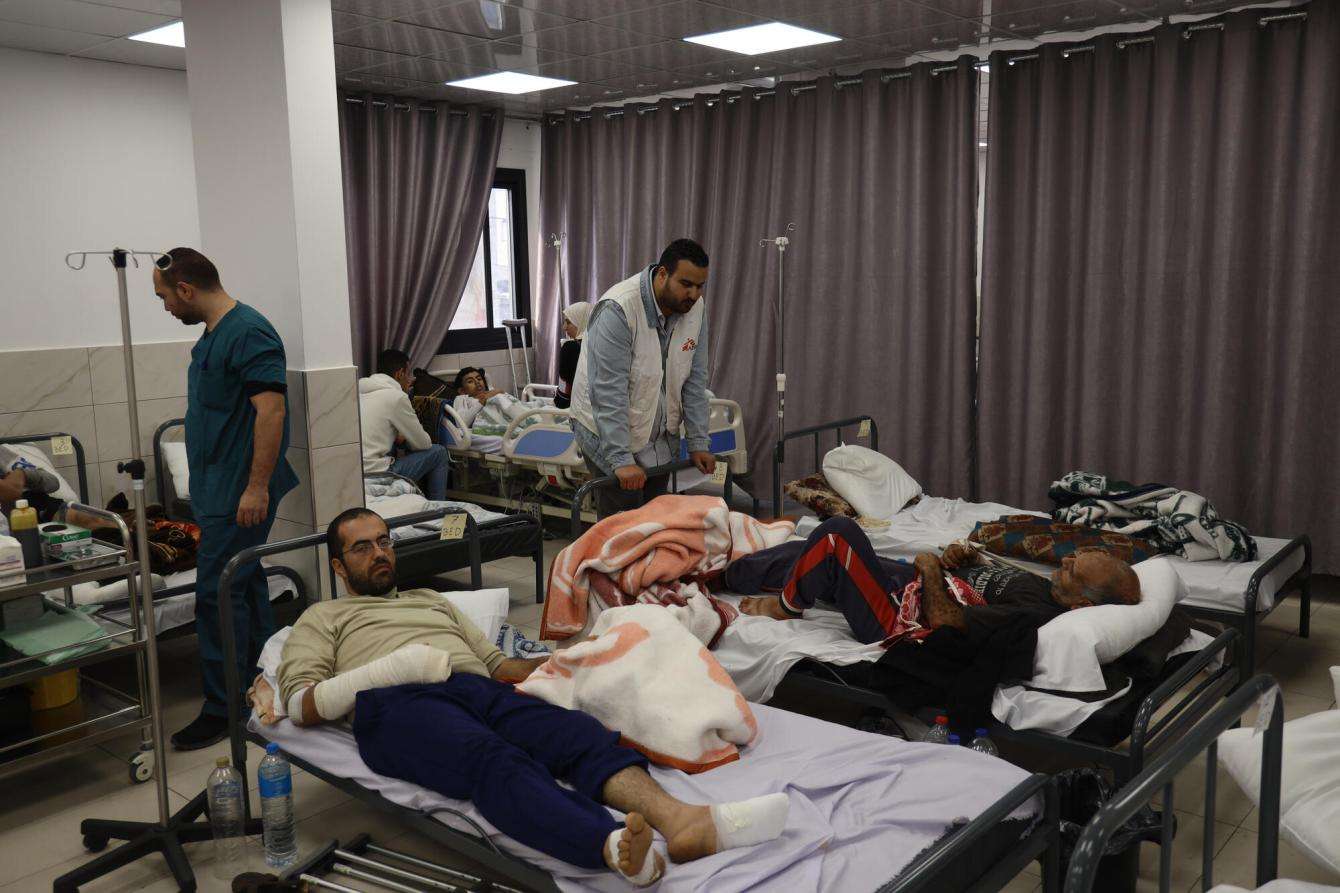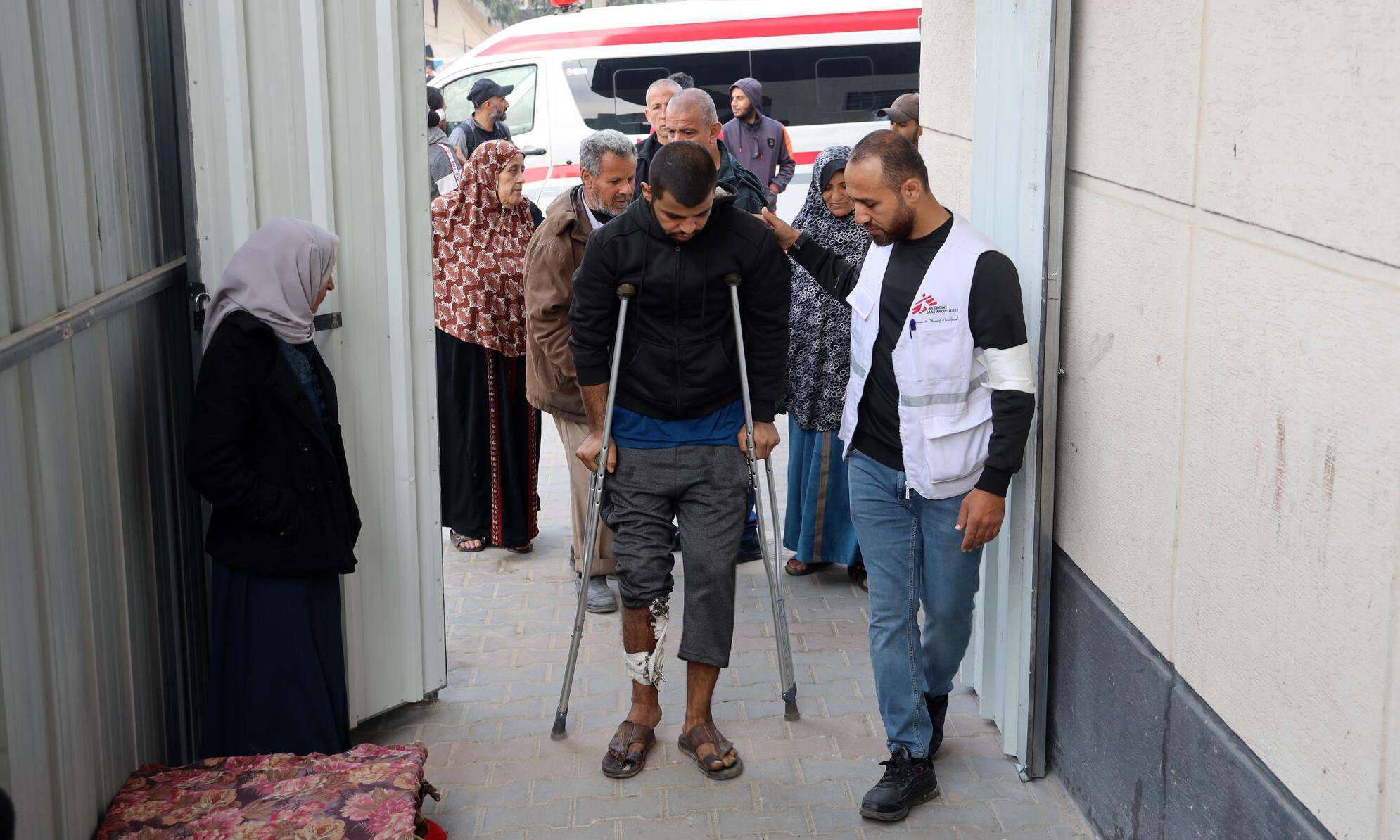Recently, Doctors Without Borders/Médecins Sans Frontières (MSF) set up a clinic inside the Rafah Indonesian Hospital in southern Gaza. Our teams at this clinic provide post-operative care to Palestinians displaced from all over Gaza to free up beds in emergency rooms in other hospitals, like Nasser Hospital in Khan Younis, where we are also providing care.
“The patients here have sustained burns and violence-related injuries from the war,” says Ahmed Abu Warda, MSF emergency doctor. Abu Warda had to flee Gaza City to the south of the strip as strikes intensified. There, he resumed his medical work with MSF.
About 1.9 million Gazans—about 85 percent of the entire population of Gaza—have been forced to flee their homes, according to UN OCHA. More than half of those displaced are crammed into the southern part of Gaza, particularly around Rafah, where the Rafah Indonesian Hospital is located.

Shorouk Al-Rantisi, a physiotherapy patient at Rafah Indonesian Hospital, says she has had to flee several times since the beginning of the war. Her leg was broken while she was trapped under rubble after a strike on northern Gaza’s Jabalia refugee camp, where she had sought refuge with her family.
“I spent a whole hour under the rubble," Shorouk says. "I was shouting but nobody heard me. Finally, they heard my weak voice. I was under multiple metal objects, which broke my leg."
After being treated in a hospital in northern Gaza, she had to flee again, while in recovery. She evacuated to Gaza's Middle Area and once again to Rafah, where she, her husband, and their three children sought refuge in a shelter.
“Every day I was in a different area. I became homeless.”
Shorouk's journey reflects the immense and mounting difficulties Palestinians continue to face, including the challenges of displacement. Displaced people in Gaza are living in appalling conditions, often in temporary shelters made of stray pieces of wood and plastic sheeting, or sleeping in the streets or other open areas. People are struggling to access basic needs—including water, food, and hygiene—and infections and diseases are spreading while health care is becoming increasingly difficult to reach. The few hospitals that remain operational are overwhelmed with patients and lack essential medical supplies that can save lives.
"We are being pushed into a corner in the south of Gaza, with fewer and fewer options to provide the health care that people so desperately need,” says Jacob Burns, MSF project coordinator in Gaza. “One of the big problems here in Gaza is that there are so many people who've been wounded, [so] the hospitals are chaotic.”
At Nasser Hospital in Khan Younis, which is the main surgical center in southern Gaza, the scene is no different.
“The hospital is not really a hospital anymore," adds Jacob. “I would say it's more like a camp. The place is just filled with people milling around, trying to sleep, trying to find a corner to make their own, trying to find something to eat, to drink. So when people are coming in, the staff are literally kneeling in blood on the floor to try to save the life of a person, even intubating on the floor, which is just really, really extreme.”
Nasser Hospital often receives dozens of dead and wounded people at a time during mass-casualty events, as the area has been under steady bombardment since December 1. MSF teams at Nasser Hospital are providing emergency and surgical treatment to patients with traumatic injuries and severe burns. Our activities have adjusted continuously to the security conditions.




